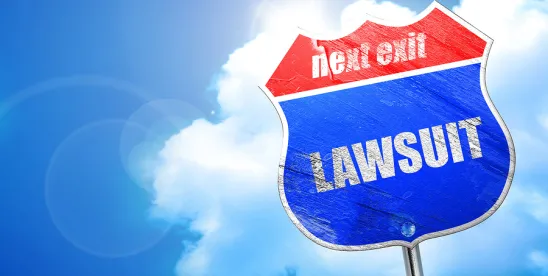By now, folks who never gave litigation funding a thought are at least tangentially aware that people can secure advances or borrow against their lawsuit settlements, life insurance policies, and annuities. In recent years, aggressive advertising by some funding groups has taught people that they can “get cash now” -- have almost instantaneous access to these kinds of assets and do it long before they mature. Even those who have been sitting on a lawsuit they’ve been threatening to file have begun to wonder what it would take to cash in on it without waiting years to settle.
Is it really that easy for clients to gain access to their future settlements?
“With just a few short clicks…”
There is hardly a consumer lawsuit funding company website that doesn’t tout an application process that takes “just 5 minutes” or one that will net the applicant “cash in as little as 24 hours”. It can be that easy. Because they are dealing with consumers who may have little or no knowledge of the process and often equate it with applying for a bank loan, funding companies work hard to remove as many roadblocks as possible.
In fact, getting the process started is easier than applying for a credit card or a payday loan. An applicant gets the ball rolling with a few clicks online or a short phone call. They will provide their name and contact information and the name and contact information for their attorney, and the cause number and court where the case is pending, if they have it. If the applicant’s case qualifies, and if all the parties are responsive and get all their ducks in a row, an applicant can be approved in as little as a day, although sometimes it can take a bit longer.
Where is the Applicant?
The first consideration is the potential client’s location. Many litigation funding companies advertise nationally and across the Internet, but they do not all do business in every state. The consumer litigation funding industry is not much more than 20 years old in the United States. The regulatory climate is in flux. The federal government does not yet regulate these transactions, and most state legislatures have not caught up. Of those that have, a few treat the transactions like loans. The rest have put in place a patchwork of statutes to regulate some aspects of the relationship, like how disclosures are couched and maximum fees the company can charge. Litigation funding companies avoid states where the regulatory climate is not settled or states that have enacted unfavorable statutes.
Who, or rather what, qualifies for a lawsuit loan?
The litigation funding company is not a lender in the traditional sense. It is an investor or it represents investors that expect to be paid from the proceeds of a successful lawsuit. Considering the nature of the lawsuit is much more important to the process than the attributes of the client.
Although the litigation funding company performs its own due diligence, it starts with the premise that another professional -- the plaintiff’s lawyer -- has determined that the case has some merit. In fact, almost universally, to tap into a pre-settlement funding source the applicant must have a lawsuit or a legal claim pending and be represented by an attorney. Some litigation funding companies offer advances on claims in class action suits, large bankruptcy cases, or claims against large settlement funds like those set up to compensate people after a disaster. For those the applicant usually does not have his own attorney, but those are relatively rare in the litigation funding industry.
In any case, there must be an underlying claim that has value and has already been documented in some way. The necessity for this is easy to understand once you consider the nature of the transaction. In a lawsuit, the plaintiff’s lawyer will conduct her due diligence before deciding whether to file suit. She will investigate the claim and estimate its viability and value. She will also judge her client’s motives and willingness to undertake the rigors of litigation, which may include depositions, rounds of written discovery, motions, hearings, and settlement negotiations, all experienced long before a trial is scheduled. As most lawyers know, personal injury litigation is not for the faint of heart. Finally, the lawyer will evaluate the defendant. It helps if the defendant is a large corporation or insurance company is involved - the kind of defendant more likely to make rational business decisions around the litigation and to have the resources to pay a settlement or judgment.
Personal Injury, Yes -- Family Law, No
Eligible cases or claims usually arise from personal injuries, but they may involve cases outside the realm of your typical 18-wheeler accident or slip and fall in the local big box store. Depending on the funder, they could include employment discrimination, civil rights, products liability, unsafe drugs, or defective medical devices, virtually any case that will result in a cash award. Some lenders will consider cases that do not fit into a typical personal injury model, like a case over a contract or a deceptive trade practice. Lawsuits that do not lend themselves well to litigation funding include those that require a non-monetary resolution, like specific performance or a temporary restraining order, domestic relations matters like fights over marital property settlements, those seeking equitable remedies like dividing property, or probate matters.
No Credit Check
In traditional lending, the credit check is a high hurdle for some potential borrowers. Many plaintiffs, who are often unemployed and plagued by injuries, either cannot qualify for credit or choose to avoid the expense and the hit on their credit scores. That is not an issue in litigation funding. The funder looks to be paid from the settlement proceeds or the judgment amount if the case goes to trial. Even if the case does not settle, settles for less than the amount of the advances, or is not resolved in favor of the plaintiff at all, the litigation funder has no recourse against the plaintiff. There is no utility in obtaining a report to track the creditworthiness of someone who has no personal liability.
The Terms
Once the lender has gathered all the information on the lawsuit, the file goes to the underwriter who evaluates the strength of the application and determines whether to approve the application and for how much.
The amount of the advance depends on how much the plaintiff needs, how the plaintiff intends to utilize the advances (living expenses, medical treatment, reduction of debt), the value of the lawsuit, how long it will take to resolve, the reputation and experience of the plaintiff’s attorney, whether they anticipate a single advance, a series of advances, or regular monthly payments. On average, plaintiffs will receive 10 to 15% of the claim’s value.
Lawsuit lenders do not charge for an application. They do not require that any of the advances be repaid before the case is resolved. The plaintiff will sign an agreement with the litigation funding company that includes repayment of the advances and payment of additional fees out of the proceeds. These fees can be a set amount or a percentage of the payout. Although these transactions are not loans and the funder does not charge interest in the traditional sense, depending on the jurisdiction the fee can include a premium tied to the length of time it took to settle the case or enter a judgment.
The plaintiff must sign the agreement, of course, and in most cases the funder will also require the lawyer to consent to the client funding request. In all jurisdictions, plaintiffs have a right to seek lawsuit loans, but so far, few states require that the litigation funding company obtain the consent of the lawyer. Because the litigation funder normally looks to the lawyer to see that the funding company is paid out of the settlement proceeds, most companies require that the lawyer -- who is already aware of the client’s desires -- sign off on the arrangement. This is similar to the duty a lawyer owes on a letter of protection to a doctor who agrees to forgo payment until the case settles.
The Payoff
Clients who opt to take out lawsuit loans are more likely to go the distance with a case. The conventional wisdom is that plaintiffs will hold out for a higher settlement or even go to trial if they are not experiencing economic stress and their physical concerns, like medical issues, have already been addressed. It makes sense that they will consider their options more rationally when they’re not hungry and the rent is paid.
When the case finally settles or judgment is rendered in favor of the client, the lawsuit loan is paid according to its terms just as the lawyer receives her contingency fee, litigation expenses like court reporters and expert witnesses are reimbursed, and medical professionals are paid on their letters of protection. The remainder, just like in any other personal injury case, goes to the client. The client has been able to enjoy some portion of the settlement long before the final payoff, plus some amount of the proceeds after the case settles. Kind of like having his cake and eating it, too.




 />i
/>i

